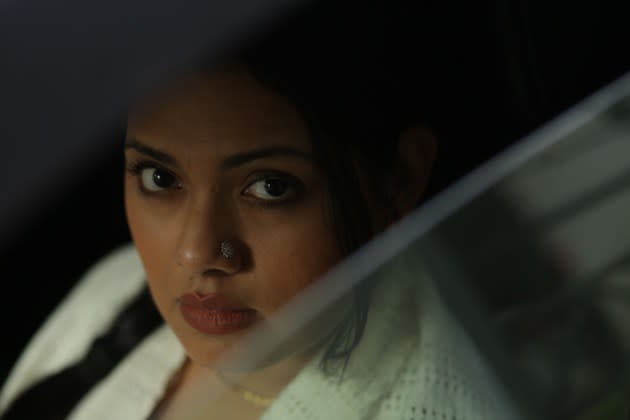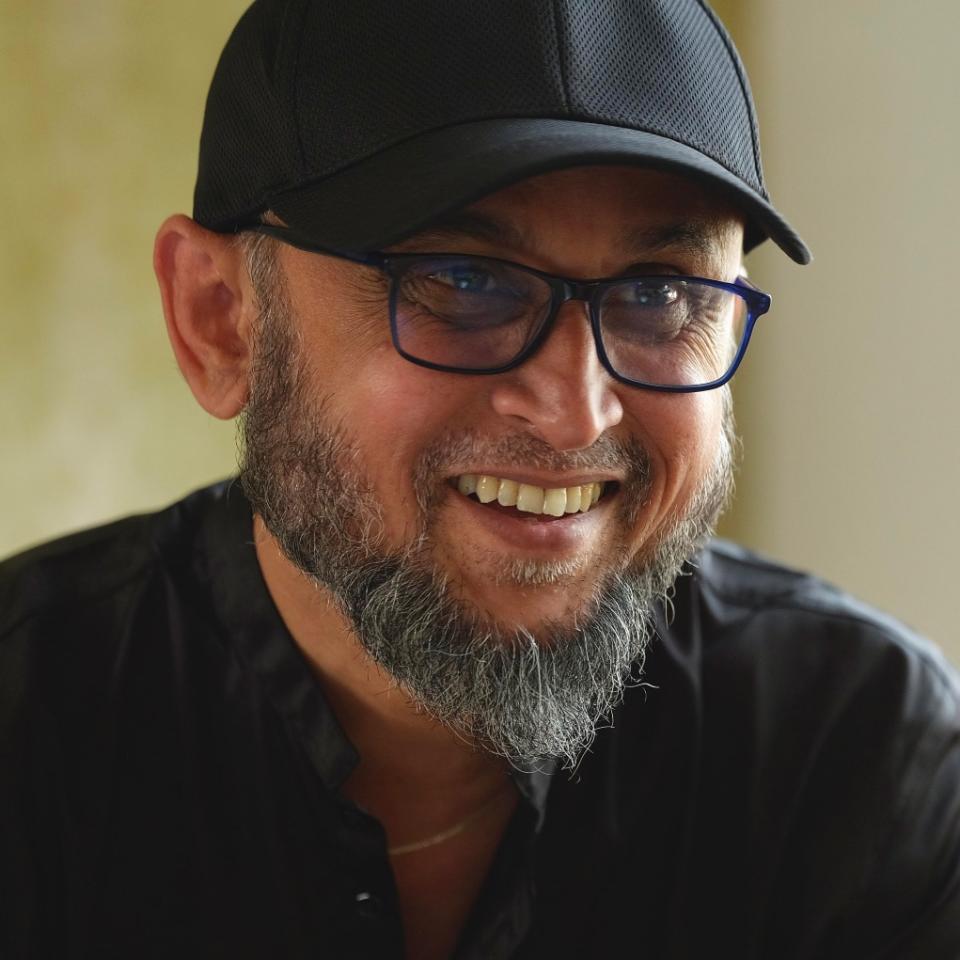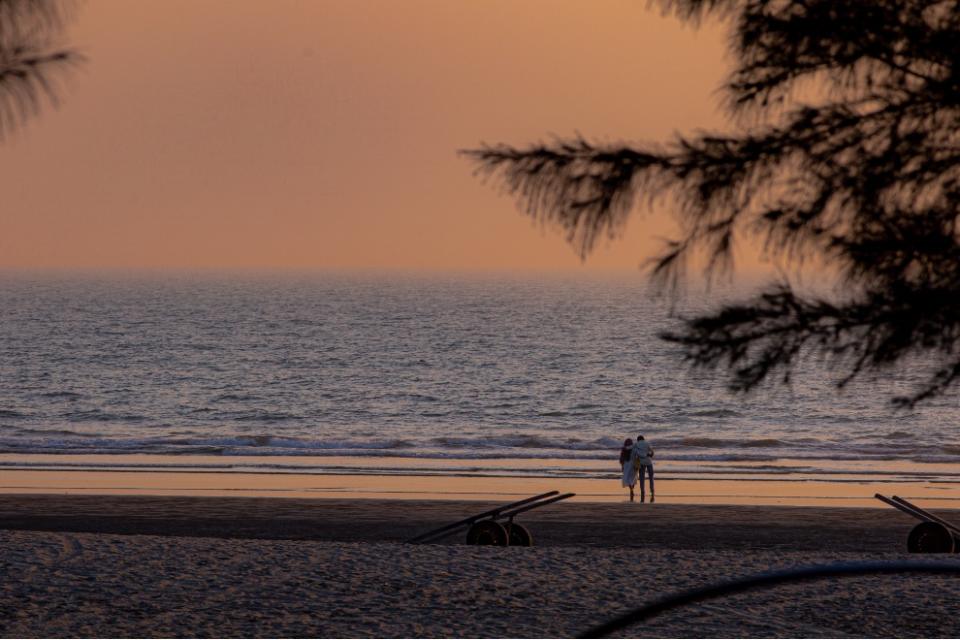Mostofa Sarwar Farooki Talks Collaboration With Bangladeshi Streamer Chorki On ‘Ministry Of Love’ Film Series – Mumbai Film Festival
- Oops!Something went wrong.Please try again later.
- Oops!Something went wrong.Please try again later.
- Oops!Something went wrong.Please try again later.

Bangladeshi director Mostofa Sarwar Farooki is attending Mumbai Film Festival with feature-length drama Something Like An Autobiography, which is playing in the festival’s Icons: South Asia section after premiering in the Jiseok section at Busan.
The project is the first in a series of 12 films that Farooki is co-producing with Bangladeshi streaming platform Chorki, among which he will direct the first two installments, with other established and newcomer filmmakers from Bangladesh directing the other ten films. Farooki recently wrapped the second film in the series, Last Defenders Of Monogamy, starring Chanchal Chowdhury in the story of married man and father who finds his firm belief in monogamy being tested.
More from Deadline
Farooki and his wife, actress Nusrat Imrose Tisha, both star in the first film in the anthology, playing a semi-autobiographical version of themselves – a husband-and-wife filmmaking couple trying for a baby after the wife has endured several years of being trolled on social media for not producing a child.
When the wife finally becomes pregnant, the couple are happy but have some conflicted emotions about parenthood. Then one evening the husband goes out to investigate a disturbance in the neighbourhood, concerned about the safety of his family, leading to events that highlight some of the inequalities and social injustices in Bangladeshi society.
The film is produced by Chorki CEO Redoan Rony and co-produced by Tisha, Farooki, Nina Lath Gupta and Anna Katchko.
Farooki’s Television closed the Busan film festival in 2012, sparking a Bangladeshi new wave that this year saw three films screening at the festival – Something Like An Autobiography, Biplob Sarkar’s The Stranger and Iqbal H. Chowdhury’s The Wrestler, with the latter winning a New Currents Award.
DEADLINE: How much of the film happened in real life and how much is fiction?
MOSTOFA SARWAR FAROOKI: About half of the film is factual and the other half is not real, but not exactly fiction either. In the second half of the film, I face some serious consequences that I haven’t faced in real life, but it captures the spirit of some of my real feelings of being suffocated and confined. For many years, my wife has been begging me to stop voicing my opinions on social media because of the backlash I could face. Nowadays I only post about my work.

At the same time, in a country like Bangladesh, when you are developing economically, but not developing culturally or educationally, it creates an imbalance in which people don’t care about others, they only care about showing off their wealth. So you buy an expensive car and take the silencer pipe out just so it creates a noise and people know it’s your car. This strange cultural situation pushed me towards this story.
DEADLINE: The film talks about the impact of social media, especially on celebrities’ lives. Do you think social media has made Bangladeshi society less tolerant?
MSF: There are two sides to it – in some ways it’s given a platform to people who are marginalised, either economically, sexually or politically, to come together and share their experiences. But the algorithm is driving us all crazy – the more negative the content is, the bigger the reach. People still had hatred in their hearts before social media, but they would meet face to face with the person they were hating at the local tea stall. They’d have a heated argument, but after five minutes they’d be hugging. The problem with social media is that you never have to look anyone in the eye.
DL: From the treatment your wife received on social media, it seems that it isn’t making life easier for women in Bangladeshi society either?
MSF: The problem is that misogyny was always around but it can be amplified ten, a hundred times on social media. My wife Tisha is blessed with the love of the people but the national question for ten years in the comments section was when are you having a baby? It was mostly from men, but also women, because if you grow up in a patriarchal system, it puts these ideas in your head.
But I don’t want to sound completely negative. There are positive developments – women in Bangladesh have started talking about choices in their lives, their relationships and their careers, they can talk openly about their likes and dislikes. It’s mostly in the middle class but positive changes are happening. There’s also the changes brought about by the ready-made garments industry – when a woman earns a decent amount of money in this industry, she has a voice.
DL: Why did you and Tisha decide to team up with Chorki?
MSF: They’ve become the flagship service among Bengali-speaking digital platforms and their programming is really unique. When me and Tisha met with them, we were discussing why the South Asian OTT space is flooded with murder mystery, thrillers, sex and violence. We were asking where is all the great drama like they’re producing in America? So Chorki agreed that its time to start producing some Bengali-language character studies, something with a bit more depth.
The idea behind Ministry of Love is a series of films that take an intelligent look at male-female relationships. Last Defenders Of Monogamy, which just wrapped, is a combination of offbeat humour and poignant emotion. At the end it becomes very poignant because we’re looking at how the choices that adults make have an emotional impact on younger kids. I guess, Chorki is really trying to make a difference with their programming. They’ve already seen some strong Bangladeshi dramas work on their platform.

DL: Bangladeshi films are punching above their weight on the international film festival circuit. What is encouraging the new wave?
MSF: When Television was chosen as the closing film of Busan, it gave the industry some momentum, but that was ten years ago and it’s taken some time for us to have any reach. We don’t have much support from government, but I suppose the OTT space in Bangladesh is giving young filmmakers a chance to experiment. We’re seeing them trying different genres and a few years back we even had a short horror film win the Grand Jury Prize at SXSW [Nuhash Humayun’s Moshari]. So we have interesting times ahead.
What we lack is government policy – we don’t want money, we just don’t want the government blocking us. They need to open up the environment so people can make films on any subject they want. I’m not just saying this because I have a film that has been blocked by the censors for five years [Saturday Afternoon, about a real life terrorist attack in Dhaka]. It’s about the fact that when one film gets blocked all the other filmmakers start self-censoring. We need to be able to flourish and take advantage of all those great young filmmakers coming out.
DL: So streaming isn’t negatively affecting indie filmmaking in Bangladesh like it is in some other territories?
MSF: People are still going to cinemas as well as watching the streaming services. Netflix is popular but streamers with Bengali-language content like Chorki and Hoichoi seem to be more popular. I think we need to need to look at the total size of the Bengali-speaking market [Bengali is the world’s seventh largest language with around 273 million speakers]. The big global streamers like Netflix and Amazon Prime say they need local content. Perhaps it’s time for them to start looking at some different language groups.
Best of Deadline
2023 Premiere Dates For New & Returning Series On Broadcast, Cable & Streaming
SAG-AFTRA Interim Agreements: Full List Of Movies And TV Series
Sign up for Deadline's Newsletter. For the latest news, follow us on Facebook, Twitter, and Instagram.

